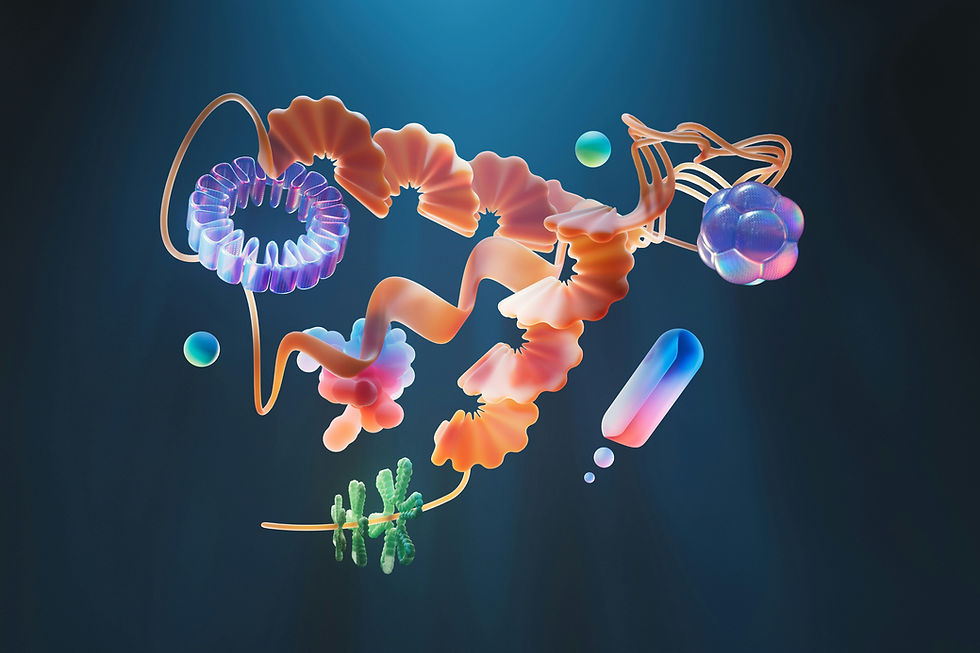AMR Education 1 year on from UNGA
- Dr Kate Grailey & Dr Sweety Suman Jha
- Sep 24, 2025
- 3 min read
As the anniversary of the 2024 United Nations General Assembly on Antimicrobial Resistance (AMR) is upon us, we thought it a fantastic opportunity to reflect on the progress made since the world’s attention was on AMR twelve months ago.
The Fleming Initiative is dedicated to the realisation of the commitments made in the political declaration at UNGA 2024, and creating a future free from resistant infections.
In the last 12 months, we have launched several convening processes, bringing together experts and key stakeholders from across the world to discuss key topics that directly relate to commitments in the political declaration, including Education, Diagnostics, Global Fellowships, National Action Plans and Policy, and Surveillance.
The first in this series of convening activities to commence was Education, led by our behavioural science lead Dr Kate Grailey. Over the course of three online meetings, over 70 key stakeholders were brought together following an open call for participation to discuss the challenges associated with AMR education and learn from fantastic initiatives that were shared from across the globe. In addition, we brought education expertise from outside the world of AMR, hearing from those working in curricula and experts in pedagogy, to help ensure that our work has real world impact and applicability. The convening process highlighted the growing role of AMR educators and activists—especially those working in vulnerable settings. By sharing both critical data and real-life stories from underserved communities at each meeting, their approach, guided by public health, behaviour science, and the One Health lens, turns presentations into meaningful conversations that inspire action.
This convening process has created outputs that will directly contribute to the realisation of paragraph 51 of the political declaration, which has a focus on creating antimicrobial stewards through education.
Through a collaborative approach, we have created a consensus document on what children and adolescents should know about AMR, in order to act as agents of change. This consensus houses thirteen key principles that AMR educational initiatives should abide by, striving to produce equitable and accessible resources for a variety of global settings. Additionally, we outline the themes which should be included when developing AMR educational initiatives, and have created two key knowledge frameworks (for AMR and infection prevention), which allow educators to holistically take students from the foundations of understanding through to complex knowledge and ideas.
Supporting this consensus, we have collated 119 AMR focused educational initiatives from across the globe, which we will publish as an academic paper and a summary report, reflecting the global progress with respect to AMR education in children and adolescents. Uniquely, we had an open call for initiatives to be submitted for inclusion, moving beyond the confines of traditional academic publishing when conducting such reviews. The findings from this review will offer a valuable guide for both the ongoing convening process and AMR educators globally. This resource, which will be kept updated as a living review, will help facilitate the adoption and scaling of ideas while also highlighting key areas for improvement, such as the measurement of real-world behaviour change.
Finally, we are proud that this convening process has led to the creation of a powerful group of people who will continue to work together, striving to improve the offer of AMR education across the globe, facilitate sharing of ideas and knowledge, and most importantly, evaluate the impact of our work in a way that is replicable and reflects both knowledge acquisition and real world behaviour change. The future of this work involves supporting local initiatives to pilot the consensus document, alongside the production of a road map for implementation, exploring how we can create a universal analysis framework for all initiatives, and create specific guides for parents and teachers.
If you would like to be involved in the AMR Education Collaborative, please email us at info@fleminginitiative.org
Witten by Dr Kate Grailey, Fleming Initiative, UK & Dr Sweety Suman Jha, Foundation for Actions and Innovations Towards Health Promotion, India




Comments